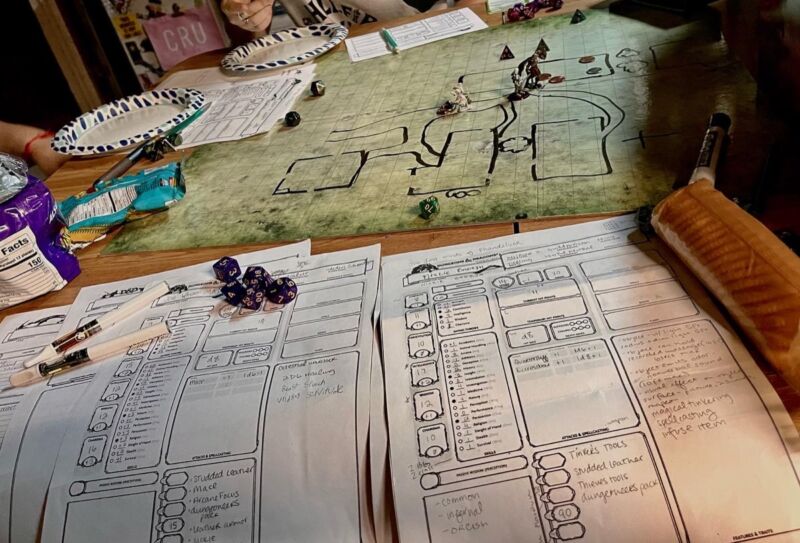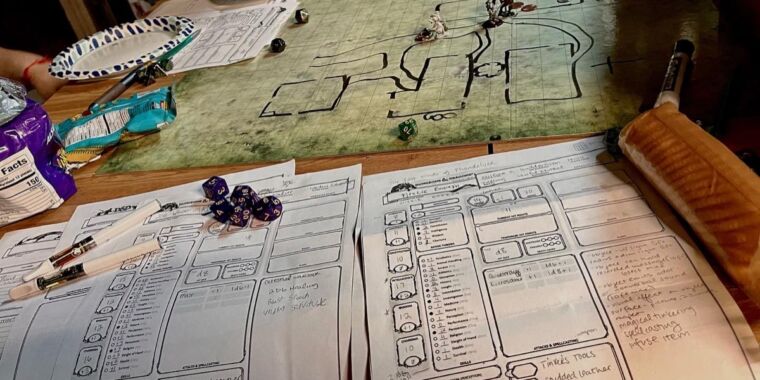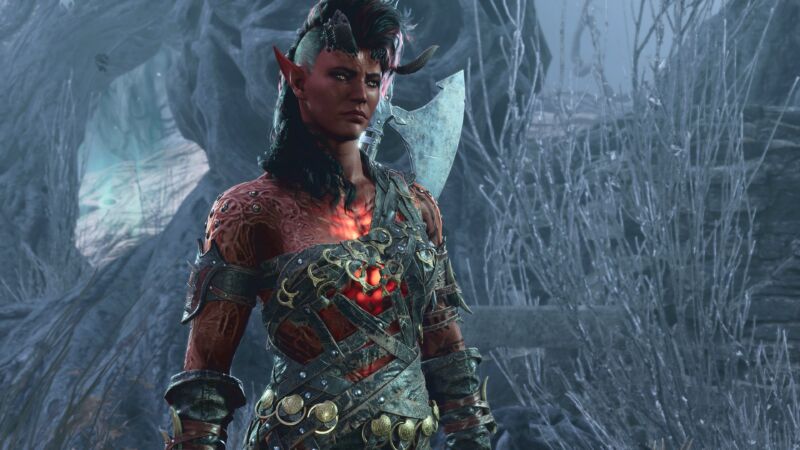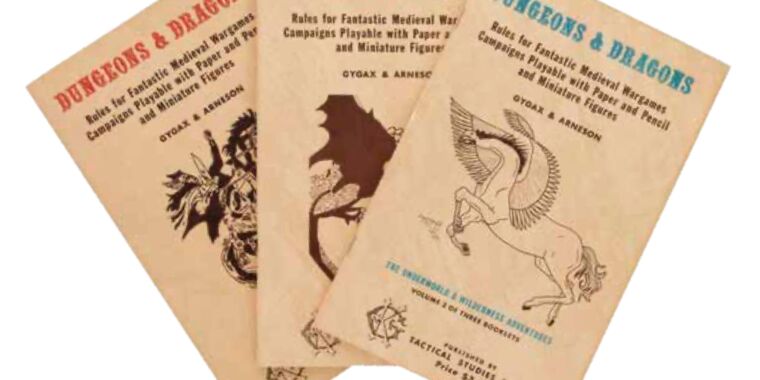Study: Playing Dungeons & Dragons helps autistic players in social interactions
We can be heroes —
“I can make a character quite different from how I interact with people in real life.”

Enlarge / Researchers say that Dungeons & Dragons can give autistic players a way to engage in low-risk social interactions.
Since its introduction in the 1970s, Dungeons & Dragons has become one of the most influential tabletop role-playing games (TRPGs) in popular culture, featuring heavily in Stranger Things, for example, and spawning a blockbuster movie released last year. Over the last decade or so, researchers have turned their focus more heavily to the ways in which D&D and other TRPGs can help people with autism form healthy social connections, in part because the gaming environment offers clear rules around social interactions. According to the authors of a new paper published in the journal Autism, D&D helped boost players’ confidence with autism, giving them a strong sense of kinship or belonging, among other benefits.
“There are many myths and misconceptions about autism, with some of the biggest suggesting that those with it aren’t socially motivated, or don’t have any imagination,” said co-author Gray Atherton, a psychologist at the University of Plymouth. “Dungeons & Dragons goes against all that, centering around working together in a team, all of which takes place in a completely imaginary environment. Those taking part in our study saw the game as a breath of fresh air, a chance to take on a different persona and share experiences outside of an often challenging reality. That sense of escapism made them feel incredibly comfortable, and many of them said they were now trying to apply aspects of it in their daily lives.”
Prior research has shown that autistic people are more likely to feel lonely, have smaller social networks, and often experience anxiety in social settings. Their desire for social connection leads many to “mask” their neurodivergent traits in public for fear of being rejected as a result of social gaffes. “I think every autistic person has had multiple instances of social rejection and loss of relationships,” one of the study participants said when Atherton et al. interviewed them about their experiences. “You’ve done something wrong. You don’t know what it is. They don’t tell you, and you find out when you’ve been just, you know, left shunned in relationships, left out…. It’s traumatic.”
TPRGs like D&D can serve as a social lubricant for autistic players, according to a year-long study published earlier this year co-authored by Atherton, because there is less uncertainty around how to behave in-game—unlike the plethora of unwritten social rules that make navigating social settings so anxiety-inducing. Such games immerse players in a fantastical world where they create their characters with unique backstories, strengths, and weaknesses and cooperate with others to complete campaigns. A game master guides the overall campaign, but the game itself evolves according to the various choices different players make throughout.
A critical hit
Small wonder, then, that there tend to be higher percentages of autistic TRPG players than in the general populace. For this latest study. Atherton et al. wanted to specifically investigate how autistic players experience D&D when playing in groups with other autistic players. It’s essentially a case study with a small sample size—just eight participants—and qualitative in nature, since the post-play analysis focused on semistructured interviews with each player after the conclusion of the online campaign, the better to highlight their individual voices.
The players were recruited through social media advertisements within the D&D, Reddit and Discord online communities; all had received an autism diagnosis by a medical professional. They were split into two groups of four players, with one of the researchers (who’s been playing D&D for years) acting as the dungeon master. The online sessions featured in the study was the Waterdeep: Dragonheist campaign. The campaign ran for six weeks, with sessions lasting between two and four hours (including breaks).
Participants spoke repeatedly about the positive benefits they received from playing D&D, providing a friendly environment that helped them relax about social pressures. “When you’re interacting with people over D&D, you’re more likely to understand what’s going on,” one participant said in their study interview. “That’s because the method you’ll use to interact is written out. You can see what you’re meant to do. There’s an actual sort of reference sheet for some social interactions.” That, in turn, helped foster a sense of belonging and kinship with their fellow players.
Participants also reported feeling emotionally invested and close to their characters, with some preferring to separate themselves from their character in order to explore other aspects of their personality or even an entirely new persona, thus broadening their perspectives. “I can make a character quite different from how I interact with people in real-life interactions,” one participant said. “It helps you put yourself in the other person’s perspective because you are technically entering a persona that is your character. You can then try to see how it feels to be in that interaction or in that scenario through another lens.” And some participants said they were able to “rewrite” their own personal stories outside the game by adopting some of their characters’ traits—a psychological phenomenon known as “bleed.”
“Autism comes with several stigmas, and that can lead to people being met with judgment or disdain,” said co-author Liam Cross, also of the University of Plymouth. “We also hear from lots of families who have concerns about whether teenagers with autism are spending too much time playing things like video games. A lot of the time that is because people have a picture in their minds of how a person with autism should behave, but that is based on neurotypical experiences. Our studies have shown that there are everyday games and hobbies that autistic people do not simply enjoy but also gain confidence and other skills from. It might not be the case for everyone with autism, but our work suggests it can enable people to have positive experiences that are worth celebrating.”
Autism, 2024. DOI: 10.1177/13623613241275260 (About DOIs).
Study: Playing Dungeons & Dragons helps autistic players in social interactions Read More »



